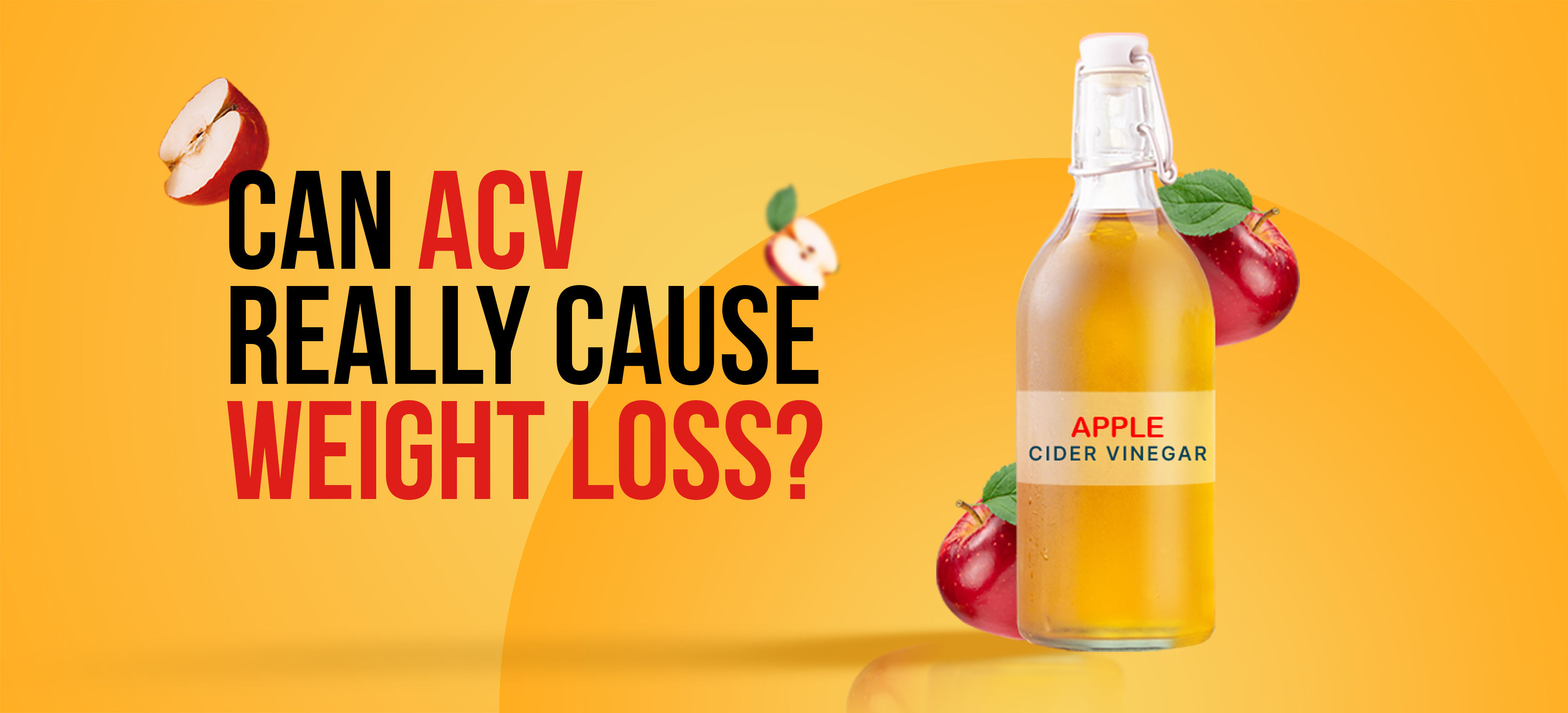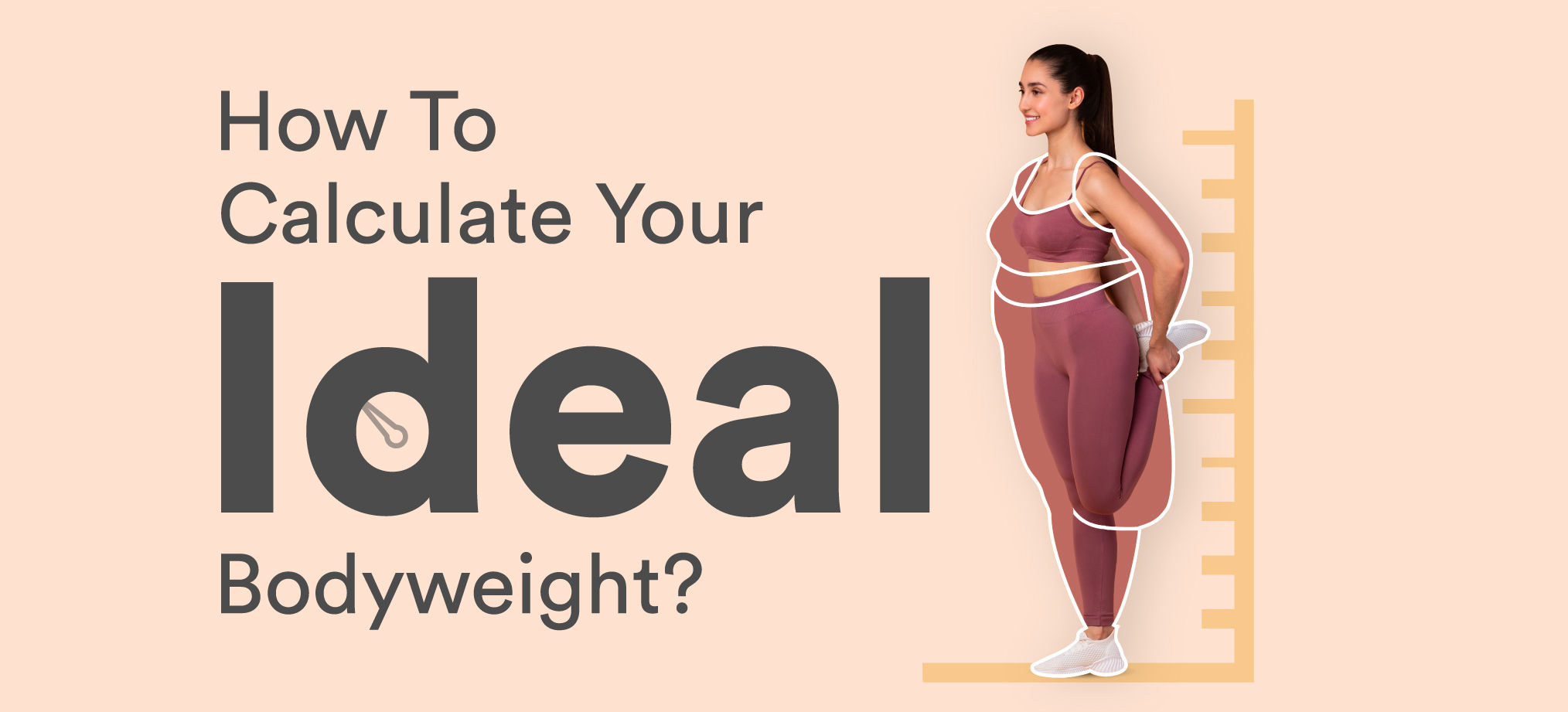Weight Management
Have You Tried Apple Cider Vinegar For Weight Loss?
3 min read
By Apollo 24|7, Published on - 12 July 2022, Updated on - 07 January 2024
Share this article
0
84 likes

Weight loss is an endless pursuit for many of us. To lose weight, we often try a number of things. One of the most common pastimes is to search the web for foods and beverages that can support our weight loss journey. One beverage that has captured the attention of weight watchers is apple cider vinegar. According to research, this fermented beverage is associated with multiple health benefits, including weight loss. The article explores apple cider vinegar and its weight loss benefits in detail below.
What Is Apple Cider Vinegar?
Apple cider vinegar (ACV) is a vinegar that is made after processing apple juice. The preparation involves a two-step fermentation process. First, the crushed apples are fermented with yeast to convert the sugar in apple juice to alcohol. In the second step, bacteria are added to the alcohol to ferment it into acetic acid.
The main active component in ACV is acetic acid, an organic compound that gives apple cider vinegar its sour taste and pungent odour. The fermented juice also contains water, malic acid, B vitamins, and vitamin C. One tablespoon of ACV offers just 3 calories and virtually no carbohydrates.
How Does Apple Cider Vinegar Support Weight Loss?
Most studies attribute the weight loss benefits of apple cider vinegar to acetic acid.
- Reduce blood glucose levels: One animal study has found that acetic acid can help the liver and muscles utilise more glucose from the blood.
- Lowers insulin levels: Research indicates that acetic acid can also decrease the ratio of insulin to glucagon, a hormone produced by the pancreas that helps in controlling blood glucose levels. This change in insulin-to-glucagon ratio likely promotes fat burning.
- Enhances metabolism: It is believed that acetic acid helps increase the levels of the AMP-activated protein kinase (AMPK) enzyme. The elevated levels of AMPK promote fat burning.
- Suppresses appetite: Acetic acid may suppress regions in your brain that control appetite, which can lead to reduced food consumption.
- Slows down fat storage: The intake of acetic acid has been found to increase the expression of genes that inhibit the storage of fat in the liver and around the belly.

Things To Keep In Mind
As discussed above, apple cider vinegar offers a multitude of health benefits. However, moderation is the key as intake of large doses can do more harm than good.
- Apple cider vinegar can aggravate the symptoms of gastroparesis, a condition characterized by partial paralysis of the stomach, and make it difficult for people with type 1 diabetes to manage their blood glucose levels.
- Given its highly acidic nature, the consumption of large amounts of apple cider vinegar can damage your teeth and irritate your throat. Prolonged and heavy intake can also increase the risk for osteoporosis (reduced bone density).
- The fermented tonic can interact with medications, such as diuretics and insulin-stimulating drugs, which can lead to a dangerous drop in your blood glucose and potassium levels.
Ways To Add Apple Cider Vinegar To Your Diet
One of the easiest ways to incorporate ACV into your diet is to use it in cooking and salad dressing. You can also use ACV for pickling vegetables. Another simple way is to mix apple cider vinegar in water and drink it. However, you should limit your intake of ACV to 15-30 ml per day.

Research seems to suggest that intake of apple cider vinegar can help support weight loss and provide certain health benefits. However, you should monitor your intake as large doses of ACV can be harmful to the body. It is also important to consult a qualified healthcare professional before you make any significant changes to your diet, this is especially true for people with pre-existing medical conditions.
Click To Buy Apple Cider Vinegar
Medically reviewed by Sonia Bhatt.
Weight Management
Leave Comment
Recommended for you

Weight Management
4 Principles of Weight Management by Dr. Raj Palaniappan
In the midst of our hectic schedules, maintaining a healthy weight can be a real challenge. Our reliance on fast food, sugary drinks, and short sleep cycles all contribute to our unhealthy weight. Find out what our expert, Dr. Raj Palaniappan has to say in this article.

Weight Management
How To Choose The Right Diet For Weight Loss?
When it comes to losing weight, it’s essential to carefully choose a diet that works best for you. The right diet can not only help you lose weight but also improve your overall well-being.

Weight Management
Body Mass Index: How Much Should I Weigh According To My Height & Age?
Maintaining optimal weight is essential for overall health and well-being, but there's no one-size-fits-all approach. Your ideal weight depends on various factors, including your height, age, body composition and sex. Learn how to know your ideal weight.
Subscribe
Sign up for our free Health Library Daily Newsletter
Get doctor-approved health tips, news, and more.
Recommended for you

Weight Management
4 Principles of Weight Management by Dr. Raj Palaniappan
In the midst of our hectic schedules, maintaining a healthy weight can be a real challenge. Our reliance on fast food, sugary drinks, and short sleep cycles all contribute to our unhealthy weight. Find out what our expert, Dr. Raj Palaniappan has to say in this article.

Weight Management
How To Choose The Right Diet For Weight Loss?
When it comes to losing weight, it’s essential to carefully choose a diet that works best for you. The right diet can not only help you lose weight but also improve your overall well-being.

Weight Management
Body Mass Index: How Much Should I Weigh According To My Height & Age?
Maintaining optimal weight is essential for overall health and well-being, but there's no one-size-fits-all approach. Your ideal weight depends on various factors, including your height, age, body composition and sex. Learn how to know your ideal weight.